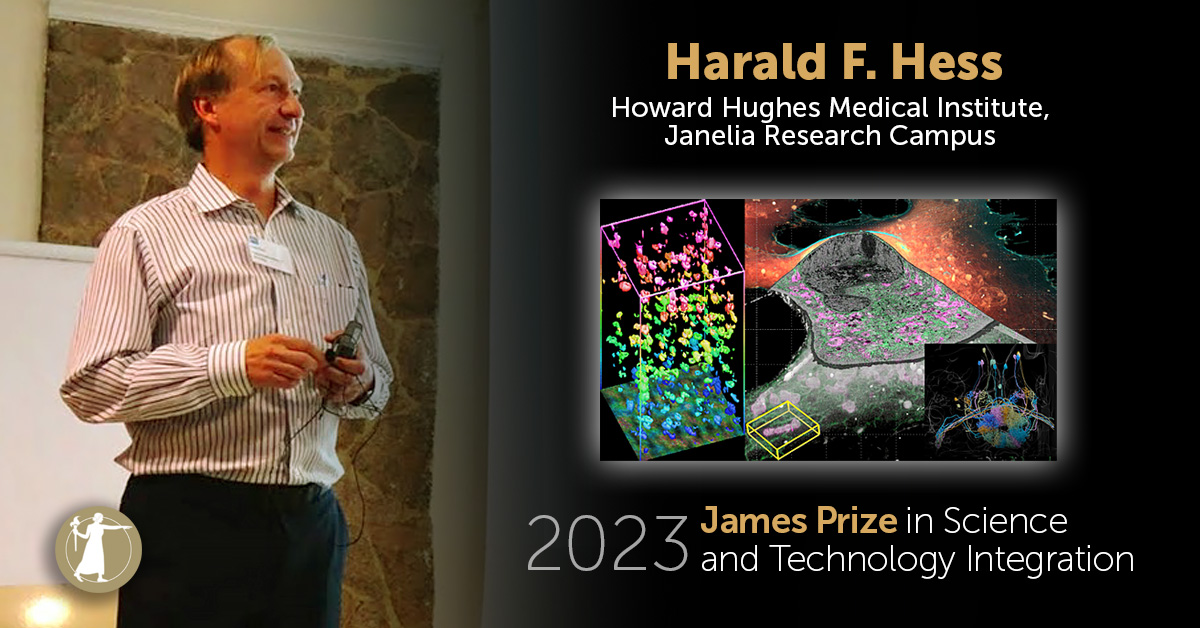2023-JamesPrize-Hess

Harald F. Hess, Howard Hughes Medical Institute, Janelia Research Campus, received the 2023 James Prize in Science and Technology Integration.
Hess’s groundbreaking work in scanning probe, optical, and electron microscopy has transformed understanding in physics and biology.
Fusing ideas from different scientific disciplines and industry, Hess’s work ranges from developing novel new forms of microscopy to refining existing microscopy technologies for the purpose of revealing new physical or biological attributes. Early in his career, Hess conceived, developed, and demonstrated forced evaporative cooling in magnetic traps, a technique later used by others to achieve Bose-Einstein condensation of atomic gases. Switching fields he developed various forms of low temperature scan probe microscopy, which enabled imaging of vortices in superconductors, electrons, and electronics states, as well as quanta of luminescence in semiconductors. The latter presented foundational observations that, in part, inspired photo-activated localization microscopy, or PALM a decade later.
Hess advanced electron microscopy by innovating from his experience in the semiconductor and hard disk drive industry of high throughput inspection, and by applying it to biology. This enabled much larger 3D volumes of tissue to be imaged such as whole cells, extended neurons and even brain circuitry with enhancements to Focused Ion Beam Scanning Electron Microscope. He also created an interferometric version of super-resolution optical microscopy called IPALM to bring optical resolution to the level approaching that of electron microscopy.
Hess’s prolific and impactful career has influenced and created new technologies that both the physics and biology community have adopted and continue to apply to advance scientific understanding.
The James Prize in Science and Technology Integration is presented with a $50,000 prize. The prize honors outstanding contributions made by researchers who are able to adopt or adapt information or techniques from outside their fields, and thus integrate knowledge from two or more disciplines (e.g., engineering, mathematics, physics, chemistry, biology, biomedicine, geosciences, astronomy, or computational sciences) to solve a major contemporary challenge not addressable from a single disciplinary perspective. The prize was established in 2020 by Robert James.


